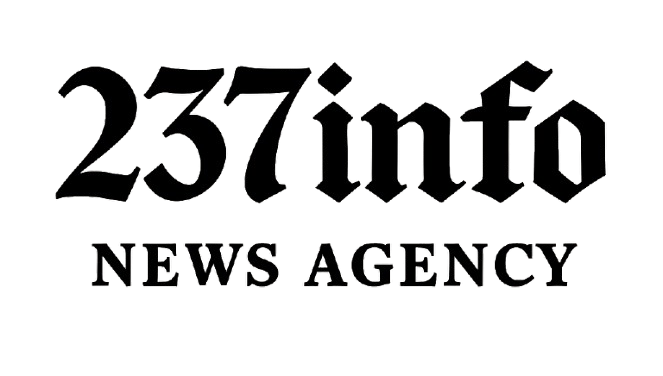1. Massive Financial Losses in 2023
- The National Anti-Corruption Commission (CONAC) revealed that Cameroon lost FCFA 114 billion (≈ US $184 million or €175 million) to corruption in 2023—its highest in five years.
- The losses spanned taxation, customs, transport, police/gendarmerie, land affairs, telecommunications, procurement and public works.
- Ghost workers and payroll fraud remain rampant, with the government losing an estimated millions annually due to fake civil servant and pensioner accounts.
2. Corruption in Education and Fake Certificates
- The education sector has overtaken land tenure as the most corrupt sector in Cameroon.
- Bribery is common at several levels:
- Primary & secondary: unofficial fees for registrations and exams, misuse of PTA funds, and creation of additional unpaid “sections” to pocket fees.
- Higher education: admission and exam bribery, sexual favors for grades, and issuance of fake certificates tarnishing the credibility of degrees.
- CONAC has started public awareness campaigns in universities and launched crackdowns on fake documents.
3. Public Procurement, Infrastructure & COVID‑19 Funds
- Multiple large-scale embezzlement cases have occurred:
- Public procurement scandal (2022): inflated contracts, fictitious payments—especially affecting road works and key ministries.
- Customs scandal (2023): officers taking bribes to facilitate improper border clearances .
- COVID‑19 health funds scandal (2024): funds intended for pandemic response were diverted, crippling hospitals.
- The Olembe Sports Complex contract was awarded without open tender, underwent costly restructuring, ballooning to ~187 billion FCFA.
4. Oil & Extractives: The Glencore Bribery Case
- In 2022, Swiss commodity giant Glencore admitted bribing SNH officials between 2011–2016 to the tune of FCFA 7 billion (≈ US $11 million) to secure oil deals.
- Some SNH executives now face trial in the UK, following Glencore’s guilty plea.
- Cameroonian anti-graft advocates demand local investigations and sanctions, not just external prosecutions .
5. Attacks on Investigative Journalists
- Martinez Zogo, a prominent anti-corruption radio host, was tragically abducted, tortured, and killed in January 2023.
- Over 20 members of Cameroon’s external intelligence service and media mogul Jean‑Pierre Amougou Belinga were arrested in connection with his death.
- This case highlighted the deadly risks faced by journalists investigating corruption.
6. Prosecutions of High‑Profile Officials
- Some high-level officials have faced convictions:
- Edgar Alain Mebe Ngo’o, former Defence Minister, was sentenced to 30 years in prison in 2023 for embezzling public funds.
- Alphonse Siyam Siwe, former Energy Minister, received 30-year sentences in 2007 for theft of FCFA 38 billion during his tenure at the Port of Douala.
- Such prosecutions are notable but analysts argue they haven’t deterred corruption—Transparency Int’l Cameroon ranks the country 142nd out of 180 in perception.
7. Reforms & Anti‑Corruption Measures
- The IMF, as part of its 2024 review, outlined structural reforms including:
- Publishing officials’ asset declarations, tender data, state-owned enterprises’ accounts, and extractive sector contracts (elibrary.imf.org).
- Strengthening anti-graft laws to criminalize illicit enrichment and guarantee CONAC’s independence.
- Enhancing procurement monitoring, public financial management, and digital land titling .
- The government began deploying AIGLES, a biometric payroll system, in mid-2024 to root out ghost workers.
- Customs corruption crackdown launched in January 2025 across major ports, backed by private sector partnerships to instill accountability.
8. Outcomes & Assessment
| Area | Progress / Outcome |
|---|---|
| Financial recovery | FCFA 114 billion lost; some fraud traced, scrutiny increased |
| Judicial action | Dozens prosecuted; key individuals imprisoned |
| Systemic reform | New laws, asset registries, and public procurement reporting underway |
| Institutional tools | AIGLES rollout, university anti-fraud campaigns, customs initiative |
| Public awareness | Growing civic reporting, media exposure |
| Ongoing pushback | Fake certificates, embezzlement persist across sectors |
Despite visible efforts and occasional enforcement, corruption remains deeply entrenched across Cameroon’s public life. Experts note that isolated high-level convictions have not fundamentally disrupted corrupt networks.
9. What’s Next?
- Continued implementation of IMF-recommended reforms through 2025, including digitalization and legal updates.
- Completion and evaluation of AIGLES rollout—vital to eliminating ghost workers.
- Strengthening CONAC’s autonomy, resources, and follow-through on investigations and prosecutions.
- Expanding public awareness and civic engagement, especially in education and procurement sectors where corruption remains prevalent.
- Protecting journalists and whistleblowers—critical for transparency and accountability.
🎯 Final Thoughts
Corruption in Cameroon is multidimensional: institutional, sectoral, and societal. While the government has made strides—through prosecutions, reforms, and technology—these are just early steps in a long uphill journey. Sustained political commitment, independent oversight, and civic vigilance will determine whether these efforts transcend rhetoric—and genuinely curb corruption.

